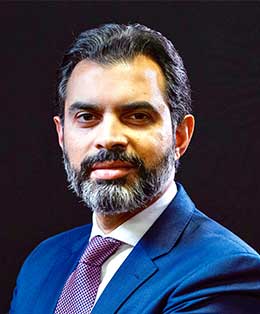Digital Currencies:
The Road Ahead
In August 2008, as world leaders grappled with the most severe financial crisis since the Great Depression, the domain name www.bitcoin.org was registered on the internet. Two months later, a paper entitled “Bitcoin: A Peer-to-Peer Electronic Cash System” appeared online, and heralded the meteoric rise of not only Bitcoin, but also the concept of digital currencies (money that exist only in electronic form).
Speakers
Forum Program
Time | Program |
|---|---|
08:00 am | Registration and welcoming |
09:00 am | Forum Opening Verses from the Holy Quran Opening Speech by MASIC Vice Chairman, Nasser M. Alsubeaei |
09:10 am | Keynote Speech H.E. Dr. Fahad bin Abdullah Almubarak |
09:30 am | Program Overview Nadine Hani |
9:40 am | Presentation by H.E. Dr. Reza Baqir |
10:10 am | Q & A |
10:20 am | Presentation by Alex Tapscott |
10:50 am | Q & A |
11:00 am | Presentation by Dr. Nouriel Roubini |
11:30 am | Q & A |
11:40 am | Panel Discussion |
12:40 pm | Closing Remarks by MASIC CEO, Hani Halawani |
12:45 pm | Presenting the winners of the “Mohammad Ibrahim Alsubeaei Award for Entrepreneurs” (Esameyoon) |
01:15 pm | Prayer Time and Lunch |
02:00 pm | End of Forum |
- During the event, the Chatham House Rule will be applied.
- The official language of the forum is English. The host will however make all effort for instant translation from English to Arabic.





Venue
Al Faisaliah Hotel, Prince Sultan Grand Hall, Riyadh, KSA
Al Faisaliah Hotel forms an integral part of Riyadh’s landmark centerpiece, the Al Faisaliah Center, which includes luxury shopping, high-tech entertainment and a 250-meter office tower. The center and hotel are ideally located in the city’s prestigious business and residential area, Olaya, affording easy access to the city’s Diplomatic Quarter, ministries, government offices, shopping and business centers.






